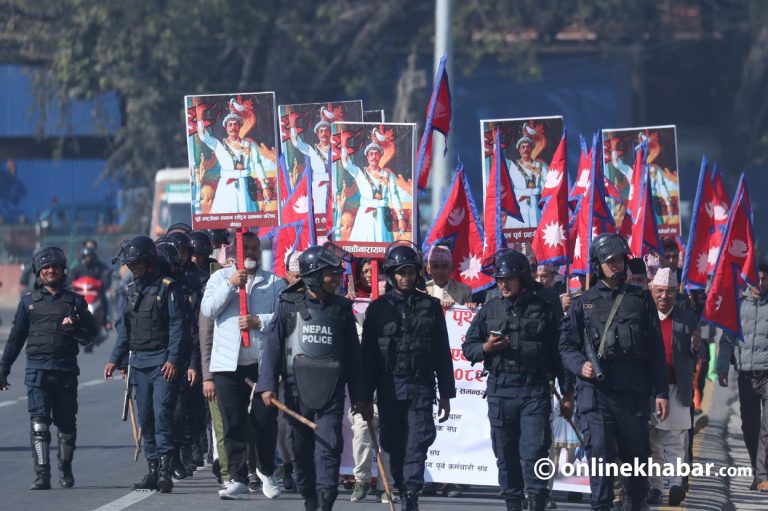
A few weeks ago, rallies and meetings took place in various parts of the country, opposing federalism, advocating against the republic, and expressing support for the monarchy.
These protestors believe that the country would benefit from adopting a monarchy. They argue that an active monarchy, led by a king, is essential to eliminate disorder, anarchy, chaos, and corruption that have surfaced in the country.
The notion that, until the eighteenth century, the active monarchical state system was connected to the feudal system of production and the resulting consciousness.
The monarchical system represents a unitary state system, where citizens’ rights are constrained. It was abolished because it was considered anti-development, anti-competitive, and anti-freedom. We have not only studied the unitary state system and active monarchy but also lived through the challenging era of active monarchy and the panchayat system before transitioning to a republic.
We have a history of nearly 70 years of struggle for the cessation of the monarchical state system in Nepal. Twelve years ago, the remnants of royal feudalism that had persisted were also eradicated. Therefore, it is essential to contemplate the reasons behind people demonstrating, including the demand for the unitary state system—an obsolete concept that has vanished from the world and was terminated a decade ago in Nepal.
What are the internal and external causes?

During the transition from feudalism to capitalism, the Nepali people put an end to the monarchy. Following the monarchy’s abolition, as Nepal entered the republican state system, the constitution directed the country to advance on the path of socialism through full democracy.
However, the conflict between the outdated truths, the old thought system, and the antiquated state machinery, along with the progressive constitution and the clash between the federal republic and unitary thinking forces, led to the ascent of the latter in the final stages.
This divergence from the sentiments envisioned by the constitution resulted in the current situation we are witnessing today. The country is marred by anarchy, riots, chaos, disorder, and corruption, causing devastation to people’s lives and weakening the economy.
As a result of widespread disillusionment, dissatisfaction and anger among the people, the old-fashioned thinking, and the powers that have ended in history, have fueled that anger, dissatisfaction and contradiction.
The situation appears to be heading towards concentration, with attempts to leverage religious sentiments by uniting the Hindu nation and advocating for the monarchy. It is essential to note that history cannot be reversed, and it would be imprudent to entertain the idea of reviving a unitary state that nearly ceased to exist in the 18th century.
Suicidal to create a monarchy
In a context where the capitalist system is increasingly incapable of resolving global contradictions, advocating for a monarchy at a time when the future trajectory should be towards socialism with social justice is considered counterproductive.

While one can empathise with the discontent and anger expressed on the streets, it is neither reasonable nor democratic to advocate for the return of the monarchy and the slogan of “Jai Desh Jai Naresh” (Long Live the Country, Long Live the King). Such an idea is deemed anti-science, anti-progress, anti-history, and anti-democratic.
Democracy and monarchy are opposites, just as it would be foolish to say that a tiger and a goat can be kept in the same cage, it would be very foolish to say that republic and monarchy, civil rights and monarchy can be kept in the same system.
Drawing an analogy, it is not sensible to assert that Tata Company should alter or replace a vehicle simply because a misguided guru has steered it towards causing accidents. The prudent course of action would be to deny driving permission to an uninformed Guruji who lacks comprehensive knowledge of how to operate a vehicle safely.
The current street uproar resembles the proverbial scenario of a foolish daughter expressing anger by urinating on her husband’s lap. Therefore, the notion of restoring monarchy by undermining the republic is deemed a crude, undemocratic, and unpalatable joke.
It is crucial to transcend this outdated notion. The correct course of action is to progress by addressing the deficiencies within the republic rather than resorting to regressive alternatives.





















